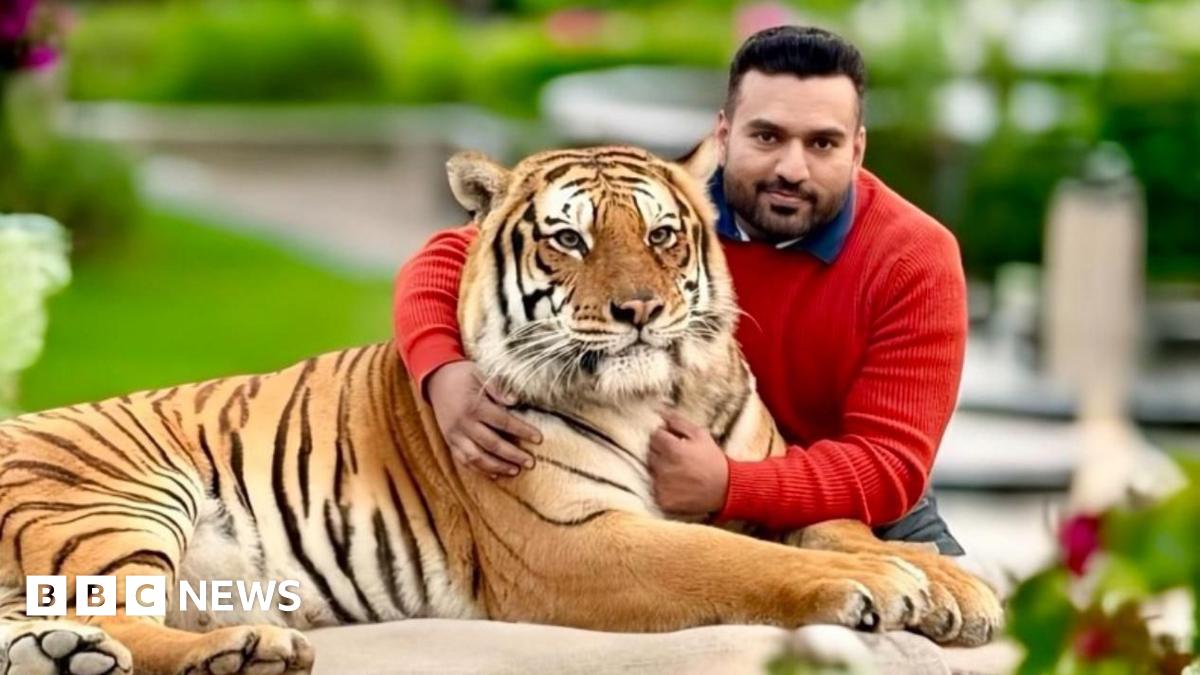Pakistan's Crackdown on Exotic Pets: Owners Defy the Law, Claiming Happy Animals

Islamabad, Pakistan – A sweeping crackdown on the ownership of exotic animals in Pakistan has sparked a defiant response from some owners, who insist their big cats, primates, and other unusual pets are thriving despite the legal challenges. The government's measures, aimed at curbing the illegal trade and ensuring the welfare of these animals, have forced many owners into hiding their cherished companions, fearing seizure and prosecution.
The crackdown, initiated in recent months, targets a wide range of exotic species, including lions, tigers, monkeys, parrots, and reptiles. Authorities cite concerns about public safety, the animals' welfare, and the impact on Pakistan’s biodiversity. The drive is part of a broader effort to combat wildlife trafficking and enforce stricter regulations on pet ownership.
However, for some owners, the crackdown represents a heartbreaking intrusion into their lives and a denial of the bond they share with their animals. One owner, speaking anonymously to avoid repercussions, revealed he’s been keeping his lions concealed on his property. “They are happy here,” he insisted. “When they see us, they come over, they eat... they're not aggressive.”
He acknowledged that one of his lions exhibited a more assertive nature. “That one is aggressive, it’s his nature,” he conceded, demonstrating a level of understanding about the animals' inherent instincts. Many owners argue that their animals are well cared for, receive proper veterinary attention, and are integrated into their families.
The situation highlights the complexities surrounding the ownership of exotic animals. While authorities emphasize the risks and ethical concerns, owners often portray a picture of companionship and responsibility. The legal framework in Pakistan regarding exotic pet ownership is often ambiguous, leading to widespread illegal trade and inconsistent enforcement.
Veterinary experts have raised concerns about the ability of private individuals to adequately provide for the specialized needs of these animals. Many lack the necessary knowledge, resources, and facilities to ensure their physical and psychological well-being. Moreover, the potential for escapes and attacks on humans poses a significant public safety risk.
The government's strategy involves raiding suspected illegal breeding and trading operations, confiscating animals, and prosecuting offenders. Wildlife conservation organizations are collaborating with authorities to provide sanctuary and rehabilitation for seized animals. However, the sheer scale of the problem and the resistance from some owners present significant challenges.
The future of exotic pet ownership in Pakistan remains uncertain. The government is considering stricter legislation, including a complete ban on the import and private ownership of certain species. The ongoing debate underscores the need for a balanced approach that prioritizes animal welfare, public safety, and the preservation of Pakistan’s natural heritage. The authorities are urging owners to voluntarily surrender their exotic pets to avoid legal penalties and ensure the animals receive the care they deserve.






